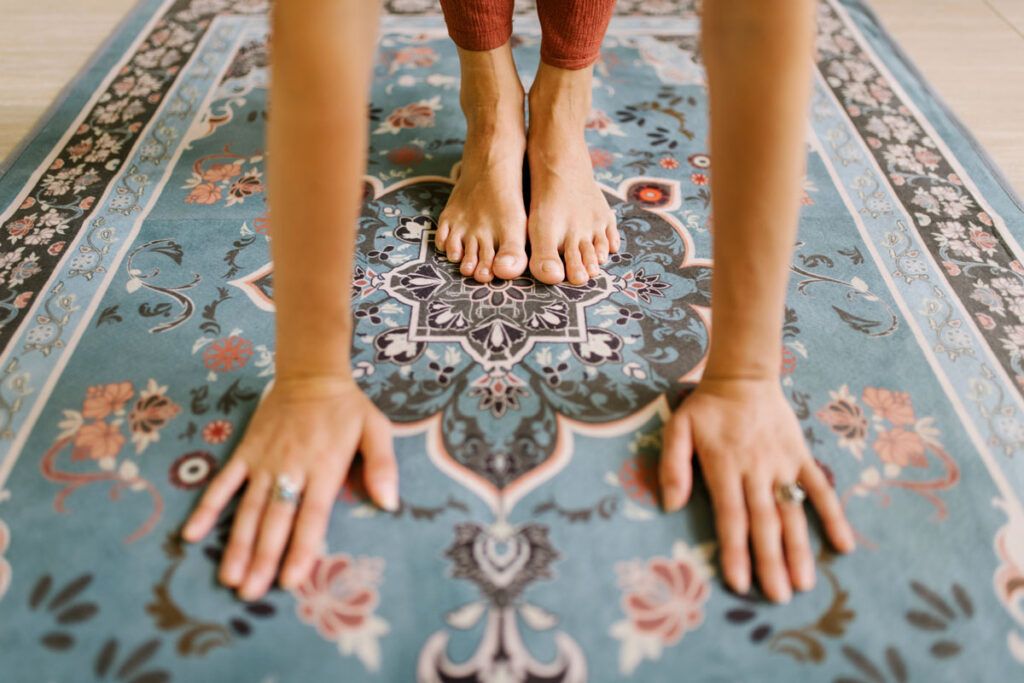Anxiety is a natural emotion that most people experience once in a while. Anxiety is part of your stress response, which is designed to keep you alert and ready for threats or challenges.
If you experience symptoms of anxiety regularly, though, it may affect your quality of life and how you function in the world. Physical activity may help decrease your chances of experiencing anxiety.
This article discusses the link between exercise and anxiety symptoms and how physical activity may help you cope.
What is an anxiety disorder?

Anxiety disorders are mental health conditions involving intense and persistent worry or fear.
You may experience anxiety occasionally, which is natural. But it may signal an anxiety disorder when it interferes with one or more aspects of your daily life.
The Diagnostic and Statistical Manual of Mental Disorders, 5th edition, text revision (DSM-5-TR), lists the following types of anxiety disorders:
- Generalized anxiety disorder: This is when you experience excessive worry about regular things, such as family health, work, or appointments. Generalized anxiety disorder may also cause physical symptoms like feeling on edge, difficulty sleeping, and tiredness.
- Panic disorder: This is when you experience recurrent panic attacks and a combination of mental and physical distress that interfere with everyday activities.
- Social anxiety disorder: This is when you have discomfort and fear that increase in social situations or in anticipation of social interaction. Social anxiety may involve an extreme fear of public speaking, meeting new people, or eating or drinking in public.
- Specific phobia: This refers to an intense fear of a certain situation, object, or activity that is not necessarily consistent with the risk it represents — for example, a severe fear of birds, plants, or blood.
Does exercise help with anxiety disorders?
Physical activity may help some people cope with symptoms of anxiety that may go away and then come back (called recurrent symptoms).
Many public health organizations — including the National Institute of Mental Health, World Health Organization, American Psychiatric Association, and U.K. National Health Service — recommend exercise and movement as tools for anxiety management.
A 2023 systematic review of 97 research reviews also found that physical activity is highly beneficial for reducing the symptoms of anxiety and temporary distress.
Another systematic review from 2018 found that high intensity exercise programs are effective tools to treat anxiety symptoms.
A 2019 analysis also found that people who are more physically active have a 27% lower chance of developing symptoms of an anxiety disorder.
How does exercise help with anxiety?
Physical activity helps lower stress-related hormone levels, such as cortisol, and boost feel-good hormones, such as dopamine, gamma-aminobutyric acid, and serotonin.
According to research from 2017, physical activity — particularly an activity you choose and enjoy — activates and engages the endocannabinoid system in your body, regardless of intensity level. This complex communication network of neurotransmitters and enzymes is not fully understood yet, but experts believe it plays a role in mood regulation and stress response, among other processes.
Exercising may also help you focus on your moving body and the activity at hand, distracting you from the source of your anxious thoughts.
What type of exercise is best for anxiety management?
Several types of exercise may help you cope with anxiety, according to the 2023 systematic review mentioned earlier. For instance:
- strength-based training, like lifting weights or using elastic bands
- mind-body exercises, like yoga, stretching, and tai chi
- aerobic exercises, like jogging and dancing
The review found that low, medium, and high intensity exercises benefit anxiety, but low intensity activity may be the least effective.
Consistency may also be essential. Engaging in moderate physical activity for at least 150 minutes every week may help you experience anxiety relief.
Research from 2021 also suggests that even short-term exercise can help to manage anxiety symptoms. Regular physical activity may be an effective anxiety prevention tool.
If you do not exercise or engage in regular physical activity, consider discussing doing so with a healthcare professional. Depending on your overall health, they’ll provide guidance about frequency and intensity levels.
How is anxiety treated?
Exercise can help you manage anxiety symptoms, but it does not replace professional treatment.
If you have anxiety symptoms that affect your quality of life or daily activities, it may help to work with a mental health professional.
They may be able to explore the root cause of your anxiety while discussing different management options. Not everyone benefits from the same anxiety management approaches, so you’ll have a say in what you do to cope with your symptoms.
Some of the possible tools are psychotherapy, medication, and self-care strategies.
Talk therapy
Talk therapy (psychotherapy) may help manage and treat anxiety. It is commonly the first line of treatment for anxiety disorders.
Therapy options for anxiety may include:
- cognitive behavioral therapy to help you reassess anxious thoughts, as well as the way you respond to them and to specific situations
- acceptance and commitment therapy to use goal-setting and mindfulness techniques to manage discomfort and anxious thoughts
Medication
Not everyone with anxiety will benefit from using medications. Your healthcare team can discuss the pros and cons with you once they know more about your situation.
Anxiety medications may include:
- selective serotonin reuptake inhibitors, such as fluoxetine (Prozac) and sertraline (Zoloft)
- serotonin-norepinephrine reuptake inhibitors (SNRIs), like venlafaxine (Pristiq)
- tricyclic antidepressants, like imipramine (Tofranil)
- short-term benzodiazepines, such as alprazolam (Xanax)
If you need help covering the cost of medications, the free Optum Perks Discount Card could help you save up to 80% on prescription drugs. Follow the links on drug names for savings on that medication, or search for a specific drug here.
